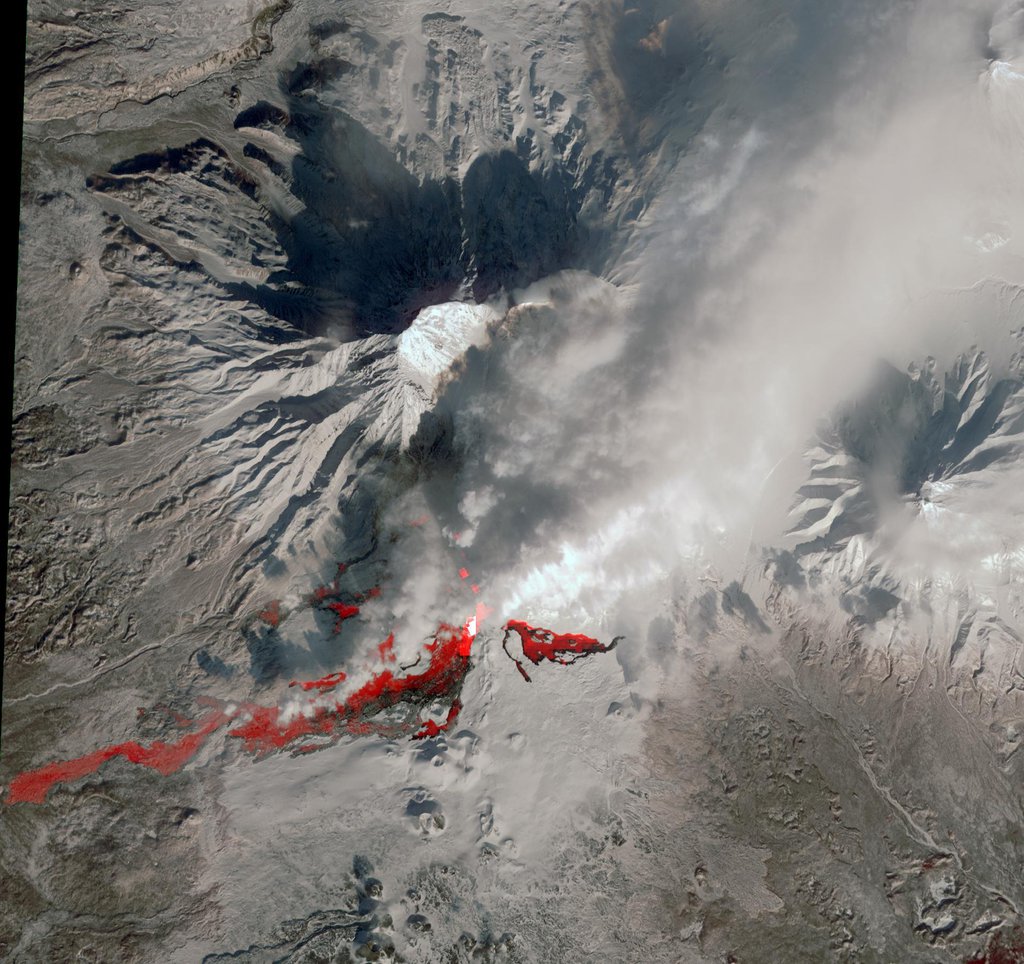NASA Satellite Captures New Russian Volcanic Eruption
For the first time in 35 years, the Plosky Tolbachik volcano in Russia's far eastern Kamchatka Peninsula erupted on Nov. 27, 2012, sending clouds of ash to the height of more than 9,800 feet (3,000 meters). In this daytime image acquired Feb. 14, 2013, by the Advanced Spaceborne Thermal Emission and Reflection Radiometer (ASTER) instrument on NASA's Terra spacecraft, the snowy winter landscape reveals the still-active lava flows.
A combination of the ASTER thermal infrared channels from the two images acquired during the day and also the previous night highlights the hot rocks in red colors. Steam and ash clouds rising to the north and northeast hide part of the flows, though the thermal infrared channels penetrate the thinner clouds. The image covers an area of 16.7 by 17.8 miles (27 by 28.6 kilometers) and is located at 55.7 degrees north latitude, 160.2 degrees east longitude.
With its 14 spectral bands from the visible to the thermal infrared wavelength region and its high spatial resolution of 15 to 90 meters (about 50 to 300 feet), ASTER images Earth to map and monitor the changing surface of our planet. ASTER is one of five Earth-observing instruments launched Dec. 18, 1999, on Terra. The instrument was built by Japan's Ministry of Economy, Trade and Industry. A joint U.S./Japan science team is responsible for validation and calibration of the instrument and data products.
The broad spectral coverage and high spectral resolution of ASTER provides scientists in numerous disciplines with critical information for surface mapping and monitoring of dynamic conditions and temporal change. Example applications are: monitoring glacial advances and retreats; monitoring potentially active volcanoes; identifying crop stress; determining cloud morphology and physical properties; wetlands evaluation; thermal pollution monitoring; coral reef degradation; surface temperature mapping of soils and geology; and measuring surface heat balance.
The U.S. science team is located at NASA's Jet Propulsion Laboratory, Pasadena, Calif. The Terra mission is part of NASA's Science Mission Directorate, Washington, D.C.
More information about ASTER is available at http://asterweb.jpl.nasa.gov/.
